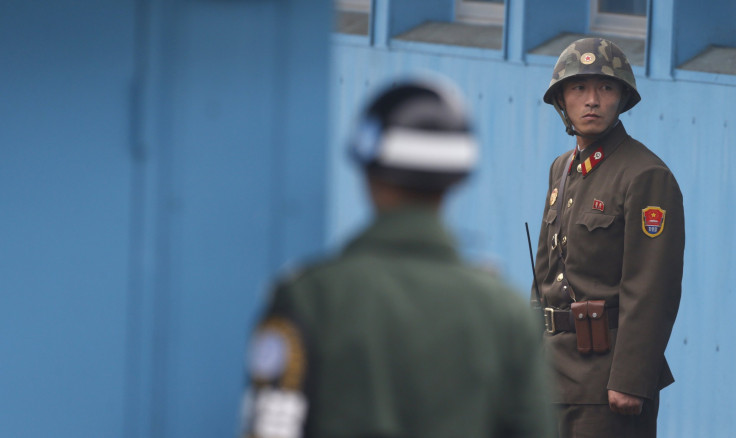Korean Unification: Plans For Forced Absorption Untrue, South Korean Official Says

A senior South Korean official retracted his statement Thursday that Seoul was secretly planning to assimilate the North by force, after he was quoted by local media two days prior that the government was planning for nonconsensual unification scenarios. "There is no team under the committee that is preparing for unification by absorption or studying similar methods," Chung Chong-wook, vice chairman of the Presidential Committee for Unification Preparation, said in keynote speech at a forum in Seoul, according to Korea Times.
Chung also said that he had used a wrong choice of words in his previous remarks. "The committee revised multiple roadmaps for unification, and peaceful unification is the only choice to bring the two Koreas together," he said.
However, some critics were skeptical of Chung’s backpedaling. "I would not say Chung made a slip of the tongue because he gave a detailed description of the committee's role on possible unilateral absorption of North Korea," Paik Hak-soon, director of the Center for North Korean Studies at the Sejong Institute, told Korea Times. "Pyongyang has considered Seoul's unification policies as a move to tear down and assimilate its regime. And I think Chung's remark could provoke North Korea further."
Others doubted that Seoul did not have plans for forced unification of the two Koreas. "It's only normal that preparations should be made for any conceivable eventuality, including reunification through absorption," Yang Moo-jin, a professor at the University of North Korean Studies in Seoul, told Agence France-Presse. "But there are things that should be kept confidential, as they only deepen North Korea's suspicion about the South's ultimate goals."
Chung had revealed in a forum Tuesday organized by the Korea Reserve Officers' Training Corps in Seoul that there were many ways to achieve unification of the two Koreas, including nonpeaceful ones. “There are many roadmaps on the process to reunification, and our committee has a team dedicated to nonconsensual unification or unification of the system,” according to South Korean website Korea JoongAng Daily. This was the first time a senior official revealed that a team existed to deal with forceful absorption of the North Korean regime.
Pyongyang has opposed unification through absorption as that presumes the collapse of its regime. “Just because we do not want unification through absorption or [collapse of the North Korean] system does not mean that it will not happen,” Chung said in his speech, according to JoongAng Daily. He added that there have been a tremendous amount of internal changes in North Korea, and that the country was increasingly influenced by market forces.
Seoul has denied that Chung’s claims of such a task force existed. The Presidential Committee for Unification Preparation released a statement Wednesday that the South Korean government seeks “peaceful unification with North Korea through mutual consensus,” adding that consensual unification is a basic principle of the committee. The statement acknowledged that Chung mentioned nonconsensual unification in his speech, but said that he emphasized that “the cost of consensual unification is much lower than that of unification by absorption,” according to South Korea's KBS World Radio.
The two Koreas have been divided since the Korean War of 1950-53, which ended in an armistice. South Korean President Park Geun-hye has been pursuing a unification of the two countries, establishing the unification committee last July as part of her Dresden Initiatives. In the initiative, Park highlighted her bid to build trust between the two Koreas by investing in infrastructure and joint natural resource development projects in the North.
© Copyright IBTimes 2025. All rights reserved.






















